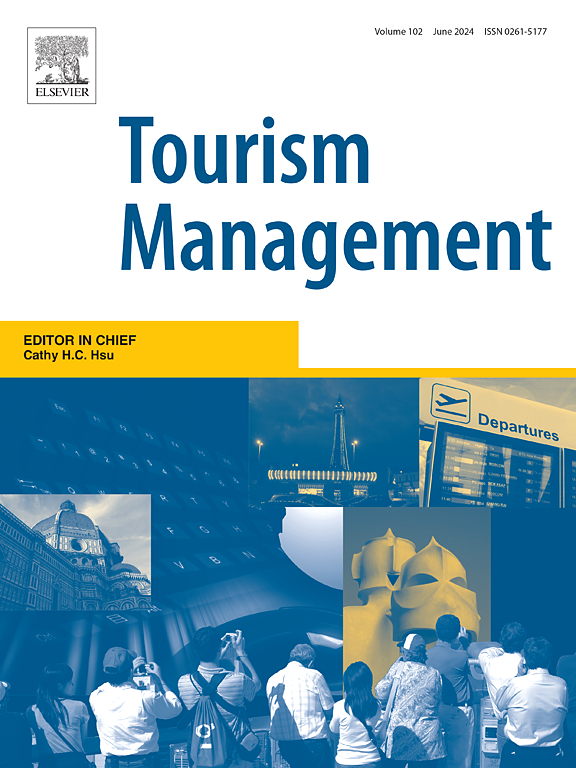每一枚硬币都有两面:智能技术颠覆的混合影响,以及员工对掌控权的内在信念
IF 12.4
1区 管理学
Q1 ENVIRONMENTAL STUDIES
引用次数: 0
摘要
智能技术对旅游业和酒店业的颠覆引发了有关其对员工工作行为影响的讨论。然而,有限的研究调查了这种中断是否会影响旅游和酒店员工的负责。利用资源守恒理论和内隐理论,我们认为智能技术颠覆对员工负责产生混合影响,这些影响取决于员工不同的内隐信念。具体来说,对于实体信徒来说,他们对技术驱动的工作替代不安全感的高度感知扼杀了他们的掌控力。相反,对于增量信徒来说,他们对技术驱动的工作转型不安全感的增强刺激了他们的掌控。我们的双路径模型通过涉及酒店、旅行社和航空公司的1262名参与者的五项研究得到验证。研究结果为寻求有效管理员工负责的旅游和酒店组织提供了理论意义和实践见解,从而在智能技术快速发展的时代促进自下而上的组织变革。本文章由计算机程序翻译,如有差异,请以英文原文为准。
Two sides to every coin: The mixed impacts of intelligent technology disruption and employees’ implicit belief on taking charge
Intelligent technology disruption in tourism and hospitality has ignited discussions regarding its effects on employees' work-related behaviors. However, limited research has investigated whether this disruption influences tourism and hospitality employees' taking charge. Drawing on conservation of resources theory and implicit theory, we contend that intelligent technology disruption exerts mixed effects on employees' taking charge, and these effects are contingent on their different implicit beliefs. Specifically, for entity believers, their heightened perception of technology-driven job replacement insecurity stifles their taking charge. Conversely, for incremental believers, their enhanced level of technology-driven job transformation insecurity stimulates their taking charge. Our dual-path model was validated through five studies involving 1262 participants from hotels, travel agencies, and airlines. The findings offer theoretical implications, as well as practical insights for tourism and hospitality organizations seeking to manage employees’ taking charge effectively, thereby promoting bottom-up organizational change in an era steeped in rapid advancements in intelligent technologies.
求助全文
通过发布文献求助,成功后即可免费获取论文全文。
去求助
来源期刊

Tourism Management
Multiple-
CiteScore
24.10
自引率
7.90%
发文量
190
审稿时长
45 days
期刊介绍:
Tourism Management, the preeminent scholarly journal, concentrates on the comprehensive management aspects, encompassing planning and policy, within the realm of travel and tourism. Adopting an interdisciplinary perspective, the journal delves into international, national, and regional tourism, addressing various management challenges. Its content mirrors this integrative approach, featuring primary research articles, progress in tourism research, case studies, research notes, discussions on current issues, and book reviews. Emphasizing scholarly rigor, all published papers are expected to contribute to theoretical and/or methodological advancements while offering specific insights relevant to tourism management and policy.
 求助内容:
求助内容: 应助结果提醒方式:
应助结果提醒方式:


